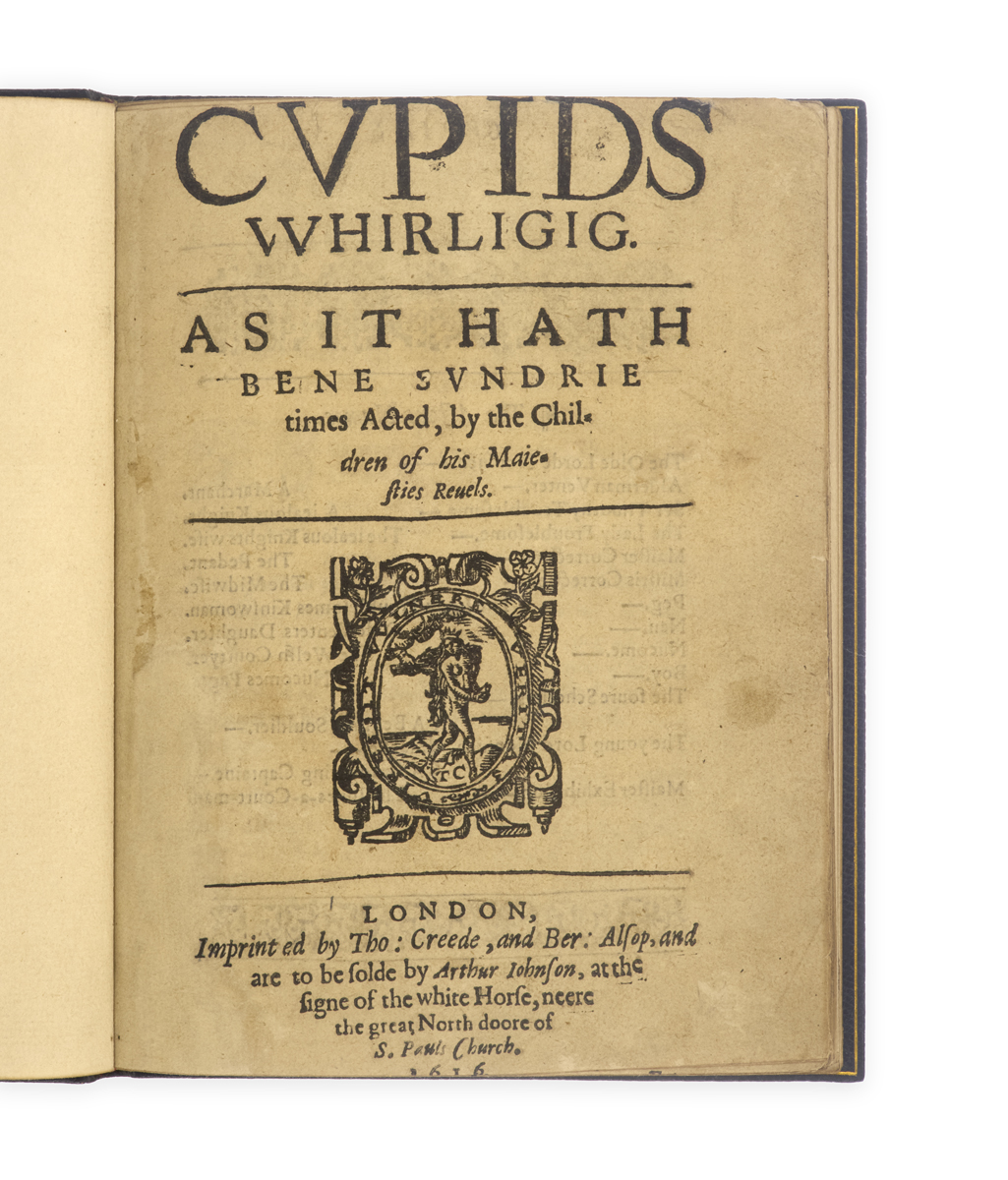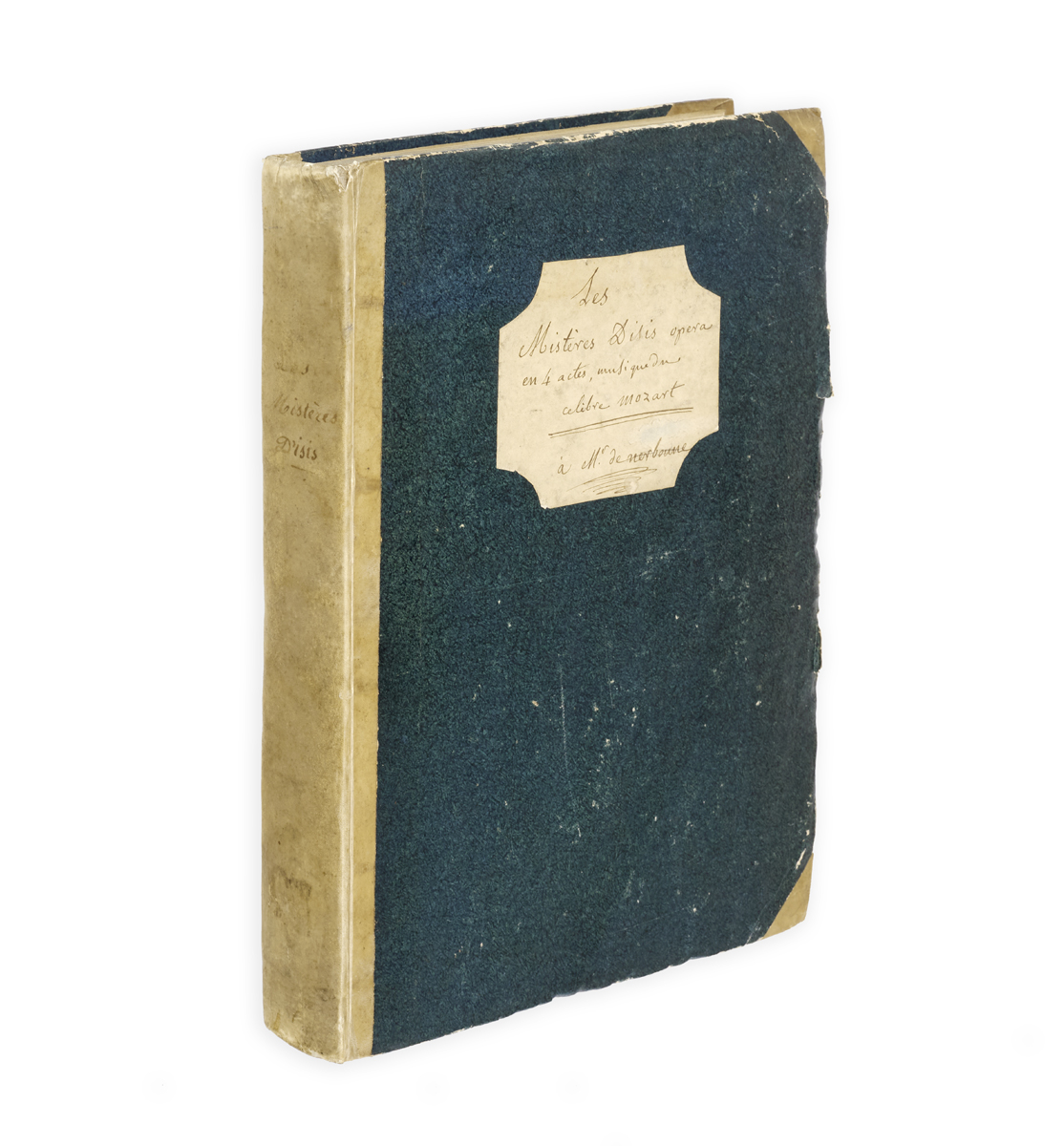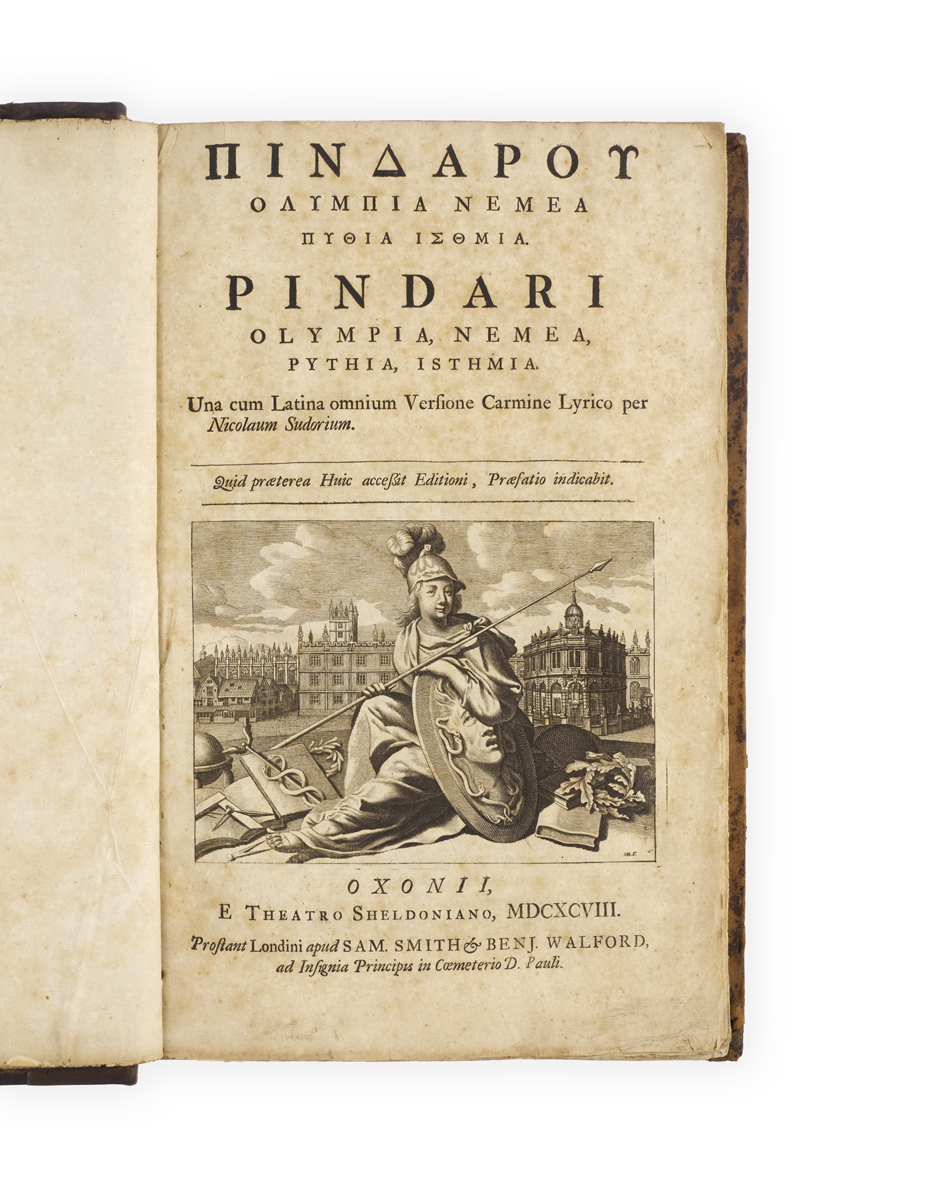
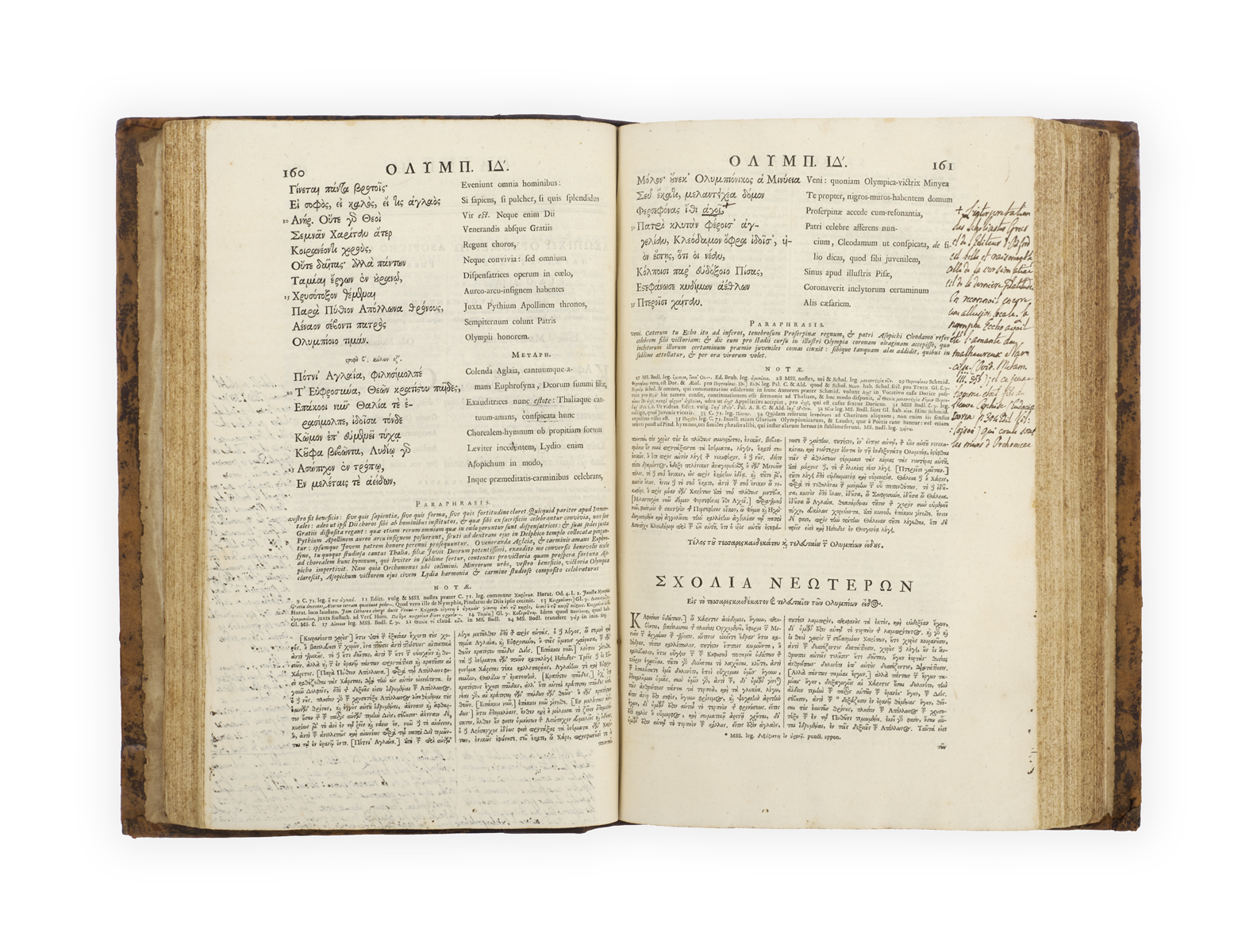
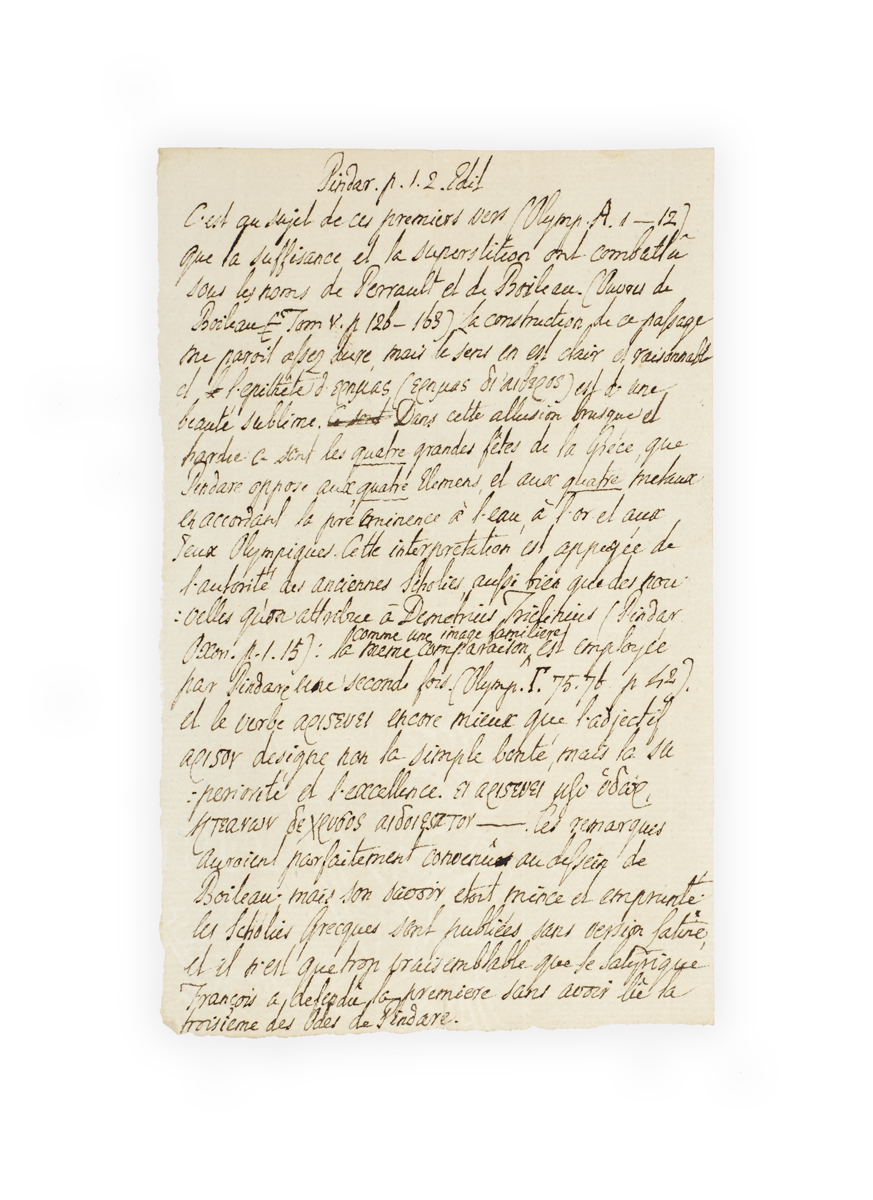
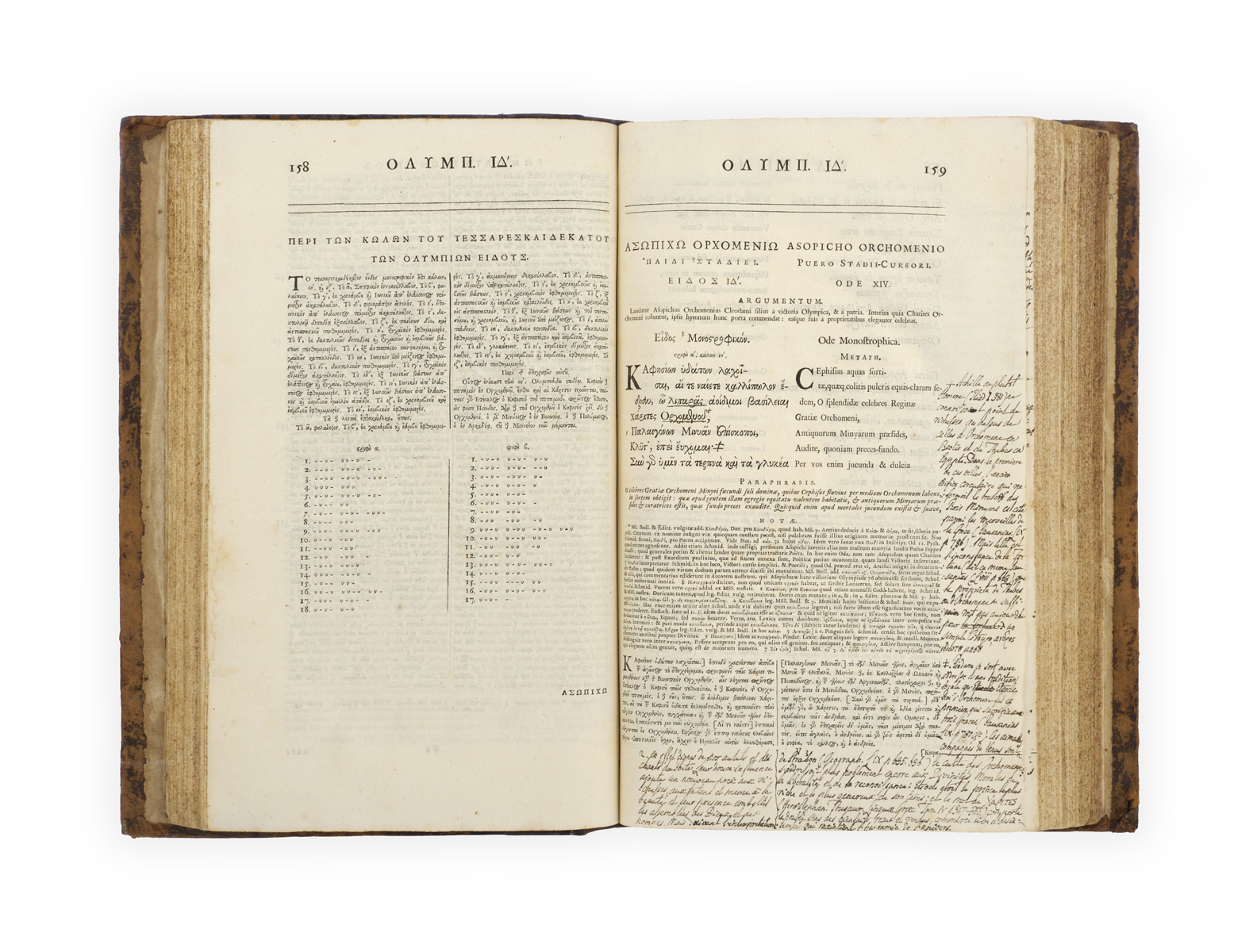
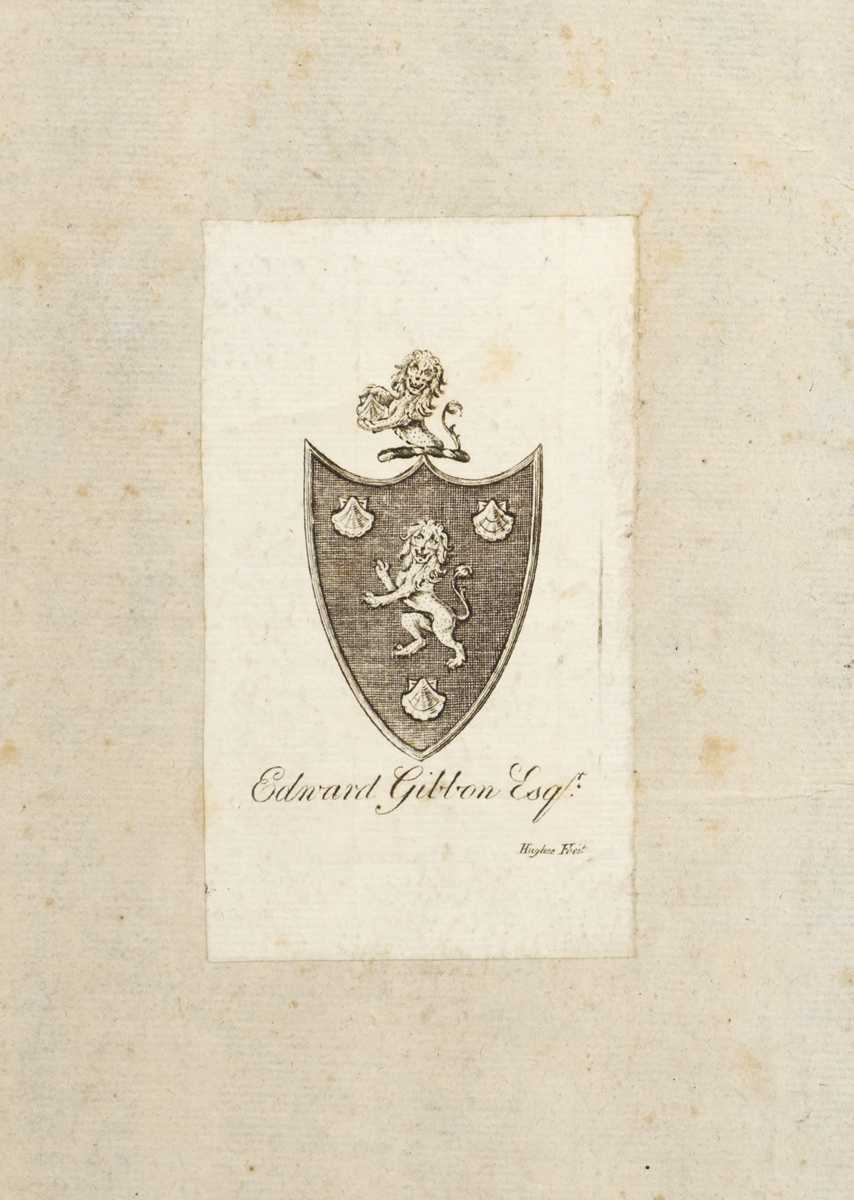
GIBBON’S PINDAR, WITH HIS NOTES – ‘D’UNE BEAUTÉ SUBLIME’
PINDAR.
Ολγμπια Νεμεα Πγθια Ισθμια … Olympia, Nemea, Pythia, Isthmia. Una cum Latina omnium versione carmine lyrico per Nicolaum Sudorium …
Oxford, E Teatro Sheldoniano, 1698 … London, apud. Sam. Smith & Benj. Walford.
Folio, pp. [30], 56, 59–497, [1, blank], [92, index], 77, [3], with a terminal errata leaf but without the engraved frontispiece and the two-leaf ‘Vita’ (c1–2); somewhat browned and foxed at the extremities, ink stain to e1, wax stains to K3 and N4; a good copy in contemporary calf, rebacked, in a modern folding cloth box; armorial bookplate of Edward Gibbon with two marginal annotations on pp. 159 and 161, and with an 8vo leaf of notes laid in loose, all in French with quotations in Greek.

Added to your basket:
Ολγμπια Νεμεα Πγθια Ισθμια … Olympia, Nemea, Pythia, Isthmia. Una cum Latina omnium versione carmine lyrico per Nicolaum Sudorium …
First edition thus, the variant with the title-page dated 1698 rather than 1697. The Greek text was edited by Richard West and Robert Welsted, and the chronology of the Olympiads provided by the Bishop of Lichfield.
Gibbon rarely annotated his books – only four books with his notes, not including the present, are listed in the Index of English Literary Manuscripts, and only two of those are printed works – editions of Herodotus and Plautus. Neither the Pindar, nor the loose leaf of notes are listed in the Index, and neither has been published.
Pindar’s Odes were important texts for Gibbon. ‘Whatsoever the fruits of my education, they must be ascribed to the fortunate banishment which placed me a Lausanne. I have sometimes applied to my own fate the verses of Pindar, which remind an Olympic champion that his victory was the consequence of his exile and that at home, like a domestic fowl, his days might have rolled away inactive or inglorious’ (Memoirs). There he refers to Pindar’s Olympian Ode 12 (pp. 139–41). In the present copy the annotations are on Olympian 14, for Asopichus of Orchomenos, with its references to the Graces and to Echo. He applauds the scholiasts’ and editors’ interpretation as ‘belle et raisonnable’, but he also notes ‘encore un allusion locale’, that Echo’s lover Narcissus was son of ‘Cephisias’ – the waters of Cephissus are mentioned in the first line. The longer note on p. 159 is on the city of Orchomenos in Boetia, and on the veneration of the Graces which began there.
Gibbon’s more standard method of commentary on his books came in the form of loose leaves of notes (‘“abtracts and observations” … on odds bits of paper of all sizes’, Keynes), which survive in similarly small quantities; an example is illustrated by Keynes in the Library of Edward Gibbon – a leaf on ‘Pindar p. 168.169 Edit. Oxon’ (IELM GiE 81, now at Cambridge). Another is laid in loose here. Headed ‘Pindar p. 1.2 Edit’, it deals with Olympian 1, the most famous of Pindar’s odes, and specifically with its opening lines on the superiority of water and gold: ‘Le construction de ce passage me paroit assez dure, mais le sense en est clair et raisonnable et l’epithête d’ ερημας (ερημας δι’ αιθερος) est d’une beauté sublime. Dans cette allusion brusque et hardie ce sont les quatre grandes fêtes de la Grèce, que Pindare oppose aux quatre Elemens, et aux quatre metaux, en accordant le pré-eminence à l’eau, à l’or et aux Jeux Oympiques…’.
This book is recorded in both the Bentinck Street, London, catalogue of Gibbon’s library (1777) and in the subsequent Lausanne card catalogue. After Gibbon’s death most of the library was sold by his executor, Lord Sheffield, to William Beckford. Beckford subsequently made a gift of the library to his physician, Dr. Frederic Schöll (also a friend of Gibbon), who sold a portion to John Walter Halliday in 1825. The remainder were sold in Lausanne in 1832–3, including our Pindar, which was among 400 lots bought by Samuel Farmar Jarvis and subsequently appeared in his sale of 1851, lot 502.
Wing P2246. Keynes, Library of Edward Gibbon, p. 221.
